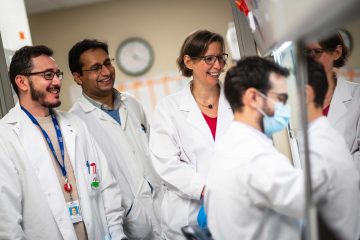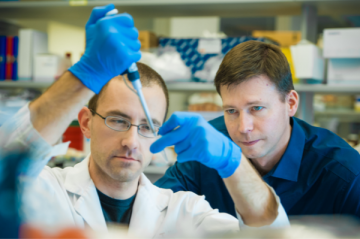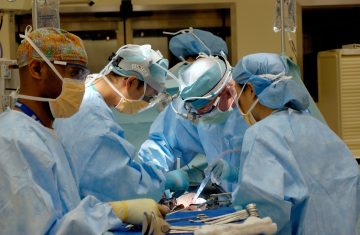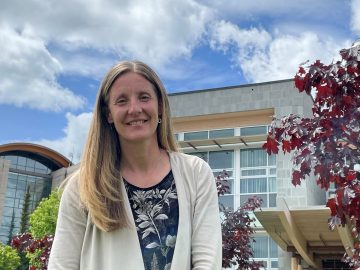chronic diseases
Harmful gut bacteria feed on sugars in the intestinal lining
By Qian Chow | July 3, 2023
New research suggests a potential treatment pathway for conditions linked to gut bacteria, like inflammatory bowel disease.
$33.8M gift to transform MS research and save more lives, sooner
By Faculty of Medicine | December 7, 2022
Gift will establish the MS Research Network, a world-class research and patient-care hub that will develop, manufacture and test next-generation therapies.
Diet and lifestyle education in a family practice clinic can benefit wellbeing
By Qian Chow | November 22, 2022
Researchers at UBC’s Southern Medical Program show how primary health professionals can help improve habits.
Cancer drug shows potential as treatment for muscular dystrophy
By dcc2012 | June 29, 2022
Experiments in mice show drug makes muscles fibres more resistant to damage characteristic of muscular dystrophy.
B.C. researchers launching clinical trial for first genetically engineered stem cell-based therapy for type 1 diabetes
By dcc2012 | May 12, 2022
Next step toward a potential functional cure for type 1 diabetes.
Dr. Michael Kobor to lead new UBC research program in healthy aging
By dcc2012 | March 24, 2022
The Edwin S.H. Leong Healthy Aging Program is aimed at helping people live longer, healthier lives.
UBC launches Canada’s first JDRF Centre of Excellence in Type 1 diabetes research
By dcc2012 | December 8, 2021
Researchers aim to bring new therapies to clinical testing within five years.
Stem cell-based treatment produces insulin in patients with Type 1 diabetes
By dcc2012 | December 2, 2021
Could one day eliminate dependence on insulin injections.
Innovative coating for blood vessels reduces rejection of transplanted organs
By Stephanie Chow | August 9, 2021
The breakthrough could one day improve quality of life for transplant patients and improve the lifespan of transplanted organs.
New study to explore potential of magnetic nanoparticles to help treat type 2 diabetes
By Stephanie Chow | August 6, 2021
The two-year project is funded by the Government of Canada’s New Frontiers in Research Fund.









